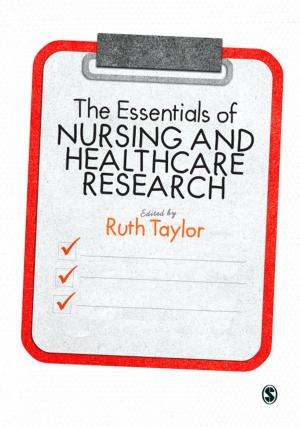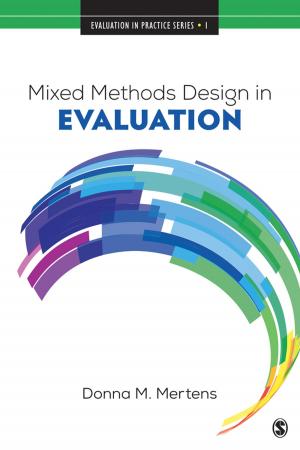Regression Basics
Nonfiction, Reference & Language, Reference, Research, Social & Cultural Studies, Social Science| Author: | Leo H. Kahane | ISBN: | 9781483317106 |
| Publisher: | SAGE Publications | Publication: | November 28, 2007 |
| Imprint: | SAGE Publications, Inc | Language: | English |
| Author: | Leo H. Kahane |
| ISBN: | 9781483317106 |
| Publisher: | SAGE Publications |
| Publication: | November 28, 2007 |
| Imprint: | SAGE Publications, Inc |
| Language: | English |
Using a friendly, nontechnical approach, the Second Edition of Regression Basics introduces readers to the fundamentals of regression. Accessible to anyone with an introductory statistics background, this book builds from a simple two-variable model to a model of greater complexity. Author Leo H. Kahane weaves four engaging examples throughout the text to illustrate not only the techniques of regression but also how this empirical tool can be applied in creative ways to consider a broad array of topics.
New to the Second Edition
• Offers greater coverage of simple panel-data estimation: Because the availability of panel data has increased over the past decade, this new edition includes coverage of estimation with multiple cross-sections of data across time.
• Provides an introductory discussion of omitted variables bias: As a problem that frequently arises, this issue is important for those new to regression analysis to understand.
• Includes up-to-date advances: Chapter 7 is expanded to include recent developments in regression.
• Uses a diverse selection of examples: Engaging examples illustrate the wide application of regression analysis from baseball salaries to presidential voting to British crime rates to U.S. abortion rates and more.
• Includes more end-of-chapter problems: This edition offers new questions at the end of chapters that are based on the new examples woven through the book.
• Illustrates examples using software programs: Appendix B now includes screenshots to further aid readers working with Microsoft Excel® and SPSS.
Intended Audience
This is an ideal core or supplemental text for advanced undergraduate and graduate courses such as Regression and Correlation, Sociological Research Methods, Quantitative Research Methods, and Statistical Methods in the fields of economics, public policy, political science, sociology, public affairs, urban planning, education, and geography.
Using a friendly, nontechnical approach, the Second Edition of Regression Basics introduces readers to the fundamentals of regression. Accessible to anyone with an introductory statistics background, this book builds from a simple two-variable model to a model of greater complexity. Author Leo H. Kahane weaves four engaging examples throughout the text to illustrate not only the techniques of regression but also how this empirical tool can be applied in creative ways to consider a broad array of topics.
New to the Second Edition
• Offers greater coverage of simple panel-data estimation: Because the availability of panel data has increased over the past decade, this new edition includes coverage of estimation with multiple cross-sections of data across time.
• Provides an introductory discussion of omitted variables bias: As a problem that frequently arises, this issue is important for those new to regression analysis to understand.
• Includes up-to-date advances: Chapter 7 is expanded to include recent developments in regression.
• Uses a diverse selection of examples: Engaging examples illustrate the wide application of regression analysis from baseball salaries to presidential voting to British crime rates to U.S. abortion rates and more.
• Includes more end-of-chapter problems: This edition offers new questions at the end of chapters that are based on the new examples woven through the book.
• Illustrates examples using software programs: Appendix B now includes screenshots to further aid readers working with Microsoft Excel® and SPSS.
Intended Audience
This is an ideal core or supplemental text for advanced undergraduate and graduate courses such as Regression and Correlation, Sociological Research Methods, Quantitative Research Methods, and Statistical Methods in the fields of economics, public policy, political science, sociology, public affairs, urban planning, education, and geography.















